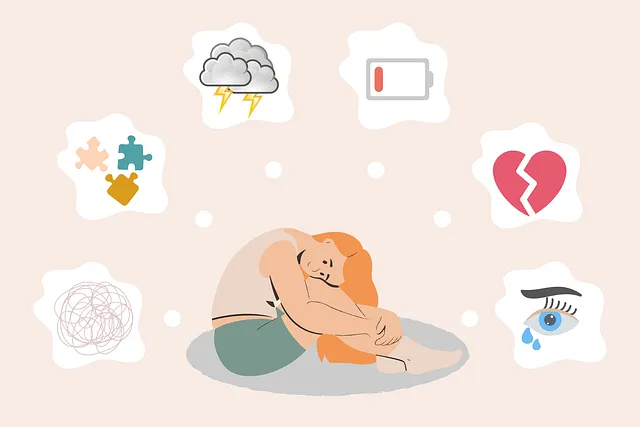Substance abuse, affecting all demographics, carries severe consequences, from impaired judgment to long-term health issues and addiction. The Kaiser Permanente mental health center Colorado Springs emphasizes prevention through education, early intervention, coping skill development, and stress management techniques. Their holistic approach includes support groups, one-on-one counseling, workshops, and a Mental Wellness Podcast Series, empowering individuals with tools for recovery and improved mental well-being. Research highlights the benefits of integrating exercise, mindfulness, support groups, therapy, and healthcare provider burnout prevention for sustained long-term recovery.
Substance abuse poses significant risks to individuals and communities, with long-lasting impacts on physical and mental health. This article explores comprehensive risk reduction strategies aimed at mitigating these dangers. We delve into the critical role of early intervention, highlighting successful programs like those at the Kaiser Permanente Mental Health Center in Colorado Springs. Additionally, we examine evidence-based techniques for long-term recovery, offering valuable insights for individuals seeking to overcome substance abuse and its associated risks.
- Understanding Substance Abuse and Its Risks
- Strategies for Prevention and Early Intervention at Kaiser Permanente Mental Health Center Colorado Springs
- Effective Risk Reduction Techniques for Long-Term Recovery
Understanding Substance Abuse and Its Risks

Substance abuse is a complex issue that impacts individuals across all demographics. It’s characterized by the excessive and harmful use of substances like alcohol, drugs, or other chemicals, leading to significant physical and psychological risks. At the Kaiser Permanente mental health center Colorado Springs, experts emphasize that understanding these risks is the first step towards prevention and recovery.
The consequences of substance abuse can be far-reaching, affecting not just the abuser but their families and communities as well. Short-term effects may include impaired judgment, coordination, and memory, while long-term impacts can result in severe health problems, addiction, and social isolation. The development of coping skills is crucial for managing stress and preventing relapse, which is why the Kaiser Permanente mental health center Colorado Springs offers resources like Mental Wellness Podcast Series Production to promote mental wellness. Effective stress management techniques, combined with strong support systems, play a pivotal role in mitigating these risks and fostering a path towards improved mental health and well-being.
Strategies for Prevention and Early Intervention at Kaiser Permanente Mental Health Center Colorado Springs

At Kaiser Permanente Mental Health Center Colorado Springs, prevention and early intervention strategies play a pivotal role in reducing substance abuse risks. The center prioritizes community outreach programs that focus on education and awareness about mental health and addiction. These initiatives target at-risk youth and adults, providing them with tools to manage stress and anxiety effectively. Through workshops, support groups, and one-on-one counseling sessions, individuals learn coping mechanisms tailored to their unique challenges.
Early identification is another key aspect of their approach. Mental health professionals conduct thorough risk assessments to pinpoint potential indicators of substance abuse. By addressing underlying mental health issues like anxiety or stress through specialized treatments, the center aims to prevent the progression towards addiction. This holistic strategy not only empowers individuals but also fosters a supportive environment where seeking help for both mental health and substance abuse concerns is encouraged.
Effective Risk Reduction Techniques for Long-Term Recovery

Effective risk reduction techniques are vital for individuals aiming for long-term recovery from substance abuse. One proven strategy is integrating holistic approaches into daily routines, such as regular exercise and mindfulness practices, which have been shown to reduce cravings and improve mental wellness, according to research conducted by Kaiser Permanente mental health centers in Colorado Springs. These activities not only promote physical health but also foster resilience and emotional stability, making it easier for individuals to navigate triggers and challenges that may arise during their recovery journey.
Additionally, participation in support groups or therapy sessions can significantly enhance long-term recovery prospects. The Mental Wellness Podcast Series Production highlights the power of peer connections and shared experiences in building resilience. Burnout prevention strategies for healthcare providers are also relevant here, as supporting oneself while providing aid to others is crucial. Incorporating resilience-building techniques into one’s life can strengthen an individual’s ability to cope with stress, reduce the risk of relapse, and promote overall mental health, ultimately contributing to a successful and sustained recovery.
Substance abuse poses significant risks, but with the right strategies, recovery is achievable. The Kaiser Permanente Mental Health Center Colorado Springs offers valuable insights into prevention and early intervention, addressing a crucial aspect of risk reduction. For long-term success, adopting evidence-based techniques proven effective at this center can make all the difference. By combining education, support systems, and accessible resources, individuals can navigate their path to recovery, minimizing future risks associated with substance abuse.






